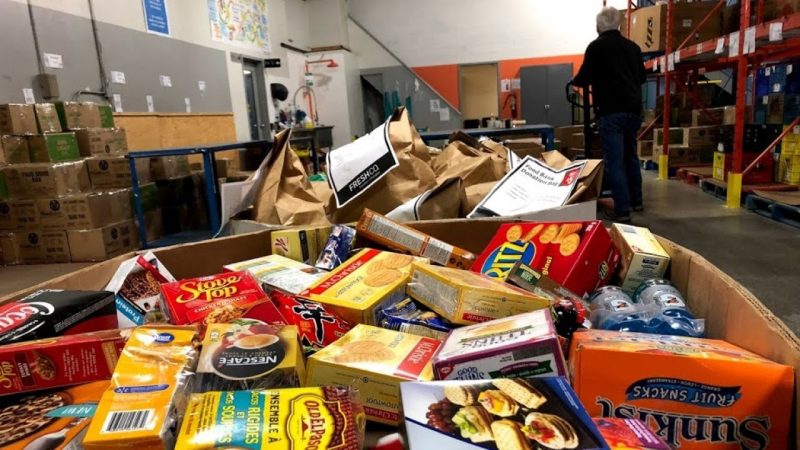It would be the first time since the welfare state was created that social security rates were based on what people need, and how much living essentials actually cost.

Newly released figures show that more than 760,000 people were forced to use Trussell Trust food banks for the first time between April 2022 and March 2023.
During the same period, almost three million emergency food parcels were handed out, marking a 37 percent increase on last year, and the highest amount food banks have ever distributed in a single year. Figures also show that demand for emergency food parcels has doubled in the last five years, and between 2017 and 18, the charity handed over 1.3 million parcels out in total, over half of which went to children.
The charity, which works to end the need for food banks in the UK, is demanding that the government acts to ensure people can afford essential living items.
Helen Barnard, director of policy at the Trussell Trust, said the situation makes her very sad.
“It also makes me angry that as a society we’re allowing more and more people to be put in a position where they’ve got no option but to turn to charities for the real basics of life,” she added.
Emma Revie, chief executive at the Trussell Trust, said that rising demand for food bank parcels shows that “ongoing low levels of income and a social security system that isn’t fit for purpose are forcing more people to need food banks, rather than just the recent cost of living crisis or the Covid-19 pandemic.”
Standard UC weekly allowance does not cover basic living costs
Research by the Trussell Trust and fellow anti-poverty charity, the Joseph Rowntree Foundation (JRF), revealed that the £85 a week standard Universal Credit allowance, falls short of the £120 a week the charities calculate as being the basic weekly cost of common essential items for a single person. The £35 shortfall is, according to the charities, contributing to hundreds of thousands of people being forced to use food banks because they can’t make ends meet. According to the JRF, 90 percent of low-income households receiving Universal Credit say they have to go without essentials.
‘Essentials Guarantee’
The anti-poverty charities are urging the government to create an ‘Essentials Guarantee’ by changing the law to ensure Universal Credit payments always, at a minimum, provide enough to cover the cost of basic living essentials, such as utilities, food and other vital household goods.
The Essentials Guarantee would be set regularly, depending on the findings of an independent recommendation. It would be the first time since the welfare state was created that social security rates were based on what people need, and how much living essentials actually cost.
Emma Revie said: “For too long people have been going without because social security payments are not based on a real reflection of life’s costs and are being pushed deeper into hardship as a result.
“We all deserve the dignity of staying warm, fed and protected from poverty and we know with the right financial support, people would not be forced to experience hunger.
“It’s time to guarantee our essentials and for the UK government to urgently change the law so that the standard allowance of Universal Credit will always cover our essentials. By pledging this the government will be taking a crucial step towards ending the need for food banks.”
Gabrielle Pickard-Whitehead is a contributing editor to Left Foot Forward
Left Foot Forward doesn't have the backing of big business or billionaires. We rely on the kind and generous support of ordinary people like you.
You can support hard-hitting journalism that holds the right to account, provides a forum for debate among progressives, and covers the stories the rest of the media ignore. Donate today.



